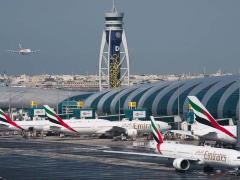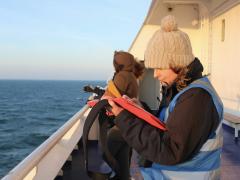The current conflict in the Middle East has disrupted travel plans globally, and South African corporates with incentive trips involving Middle Eastern hubs are facing uncertainty, potential reroutes and tough decisions, according to Robyn Ireton, GM for Incentives and Global Immersions at Tourvest.
Ireton confirmed that, while no incentive groups had been directly affected, disruption was likely as companies reassessed travel policies in light of the volatile situation.
“We’ve got incentive trips planned for September, October and November that route via the Middle East, but nothing travelling immediately,” Ireton told Travel News.
“I would imagine companies will consult their risk and duty-of-care policies before making any decisions. It’s unlikely to be outright cancellations – more likely rebooking or rerouting.”
A pandemic flashback
Following recent airspace closures and temporary flight suspensions in the region, most notably in Qatar, Ireton said Tourvest had been in contact with corporate clients to gauge their response.
“We’ve had calls scheduled for feedback sessions to see how they want to handle upcoming incentives. Luckily, at the moment, we don’t have incentives happening directly within the Middle East, but we do have groups connecting through hubs like Doha,” she explained.
For those incentive trips continuing to other destinations via Middle Eastern gateways, the priority is flexibility and access to accurate information. But Ireton admitted that the situation was reminiscent of the chaotic early days of the COVID-19 pandemic.
“It almost takes you back to those COVID times, where no one knew what was going on – do we cancel, do we postpone? We had people travelling on Monday night (June 23) while everything was unfolding, and we were getting information before the people on the ground even had it. It was a lot of ‘hurry-up-and-wait’, which makes it very tough for travel agents.”
Long-term impact
While some corporates are showing increased caution, Ireton believes the lasting impact on incentive travel to the region will depend heavily on how the conflict evolves.
“I don’t know about a long-term impact. Maybe caution for the next three months, but people forget very quickly,” she said. “At the end of the day, if you’ve got a budget for your incentive, and the only way to meet that is by flying through Qatar or the UAE, people tend to focus on the bottom line rather than what happened three months ago.”
Tourvest is advising South African corporates considering new incentive programmes to explore alternatives to Middle Eastern carriers, but ultimately, the final call rests with clients and their risk management policies.
“We can only guide them based on how we would approach it,” Ireton said. “For the new tenders we’re doing now, we’re showing alternative airlines and recommending those, given the current conflict. But unless you’re a corporate with huge international exposure and strict duty-of-care policies, I think people are already starting to brush over it and hope that, with the ceasefire in place, things stabilise.”
Despite the uncertainty, Ireton remains optimistic that the incentive travel sector will weather this challenge, just as it did during the COVID-19 pandemic.
“We managed to get through that, and we’ll get through this. We’re seeing a lot of activity with new tenders, planning six months to two years ahead – so the industry is still moving forward,” she said.













